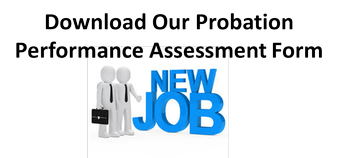Paris-to-Nice Cycle 2014
Last update: 30/09/2014 @ 10:11
The Final Update - Mission Accomplished
So after 6 roller coaster days, I am pleased to say that we finally made it to Nice safe and well. I would like to express my sincere thanks and gratitude to everyone for their support over the last few months. Between us we've raised over €11k for Special Olympics Ireland and we really couldn't have done any of this without your support. For those of you that are interested I've included some photo's of the event above. Thanks again, Philip. [divider]Stage 4 - Carpentras to Aix [105KM]
Some photos from yesterdays cycle to Aix. The group are now about to depart on the second last stage of their cycle which will bring them from Aix to Maxime (128 KM). We understand that it is getting progressively harder as the trip goes on with the elevation gain increasing from 547m to 1574m.[divider]
Stage 3 - Logis to Carpentras [90KM]
Slightly later than scheduled, the group set off on their way to Carpentras just after 12.00pm this afternoon. The cycle took them through the lavender fields in the region via the village of Grignan which hosts a stunning Renaissance Castle. The group are expected to finish todays cycle in the next hour which will see them reach the half way point of the challenge.
[divider]
The group are expected to finish todays cycle in the next hour which will see them reach the half way point of the challenge.
[divider]
Stage 2 - Montargis to Nevers [143KM]
The group have now completed Stage two of their cycle to Nice. They are currently in the town of Nevers in central France. Today they left Montargis and travelled 143km to Nevers where they arrived at around 16:45. Tomorrow they will leave to cycle to Carpentras on stage 3 of the cycle.
Two cyclist have been injured in the last 48 hours which sadly means they will be unable to complete the challenge.
Check back again tomorrow for further updates and thanks again for all your support.
[divider]
Today they left Montargis and travelled 143km to Nevers where they arrived at around 16:45. Tomorrow they will leave to cycle to Carpentras on stage 3 of the cycle.
Two cyclist have been injured in the last 48 hours which sadly means they will be unable to complete the challenge.
Check back again tomorrow for further updates and thanks again for all your support.
[divider]
The HR Company Proudly Supporting Special Olympics Ireland
The HR Company has teamed up with Sigmar Recruitment in support of Special Olympics Ireland. This year's event 'Paris2Nice' is just about to get underway with both Managing Directors of The HR Company and Sigmar joining an additional 93 cyclists as they make their way to Paris for the start of the 700 mile cycle. The first stage of the of cycle which commences tomorrow morning Saturday 20th September 2014, will see the group travel 128km from Paris to Montargis.Since 2011 Paris2Nice has raised €1.25m for a number of different charities. Paris2Nice is a central coordination hub, which in 2014 is supporting 95 riders to raise funds for 18 charities. The cycle will take place from 20th-25th September and the target for this year is €1,000,000!
Philip and Adie would like to pay a special thank you to everyone who has supported them over the last 9 months or contributed to this very worthy cause.
You can continue to contribute to this cause with all funds raised going directly to the charity.
Please note Philip and Adie will be paying for the cost of the trip independently of the fundraising, so be rest assured your donation will make a difference to those who need it.







 1) If the initial inspection finds Employment Legislation breaches the employer is instructed to take the appropriate steps to rectify the matter.
2) NERA sends a letter to request evidence that the employer is now compliant.
3) If the response is inadequate, the company is warned that any further breaches will be sent to NERA's legal services for prosecution. Then a follow-up inspection occurs.
1) If the initial inspection finds Employment Legislation breaches the employer is instructed to take the appropriate steps to rectify the matter.
2) NERA sends a letter to request evidence that the employer is now compliant.
3) If the response is inadequate, the company is warned that any further breaches will be sent to NERA's legal services for prosecution. Then a follow-up inspection occurs.









 On 17th September 2013 a former employee of a coach hire company referred his case under Section 20 (1) of the Industrial Relations Act, 1969 to the Labour Court and agreed to be bound by the Recommendations of the Court.
On 17th September 2013 a former employee of a coach hire company referred his case under Section 20 (1) of the Industrial Relations Act, 1969 to the Labour Court and agreed to be bound by the Recommendations of the Court.

